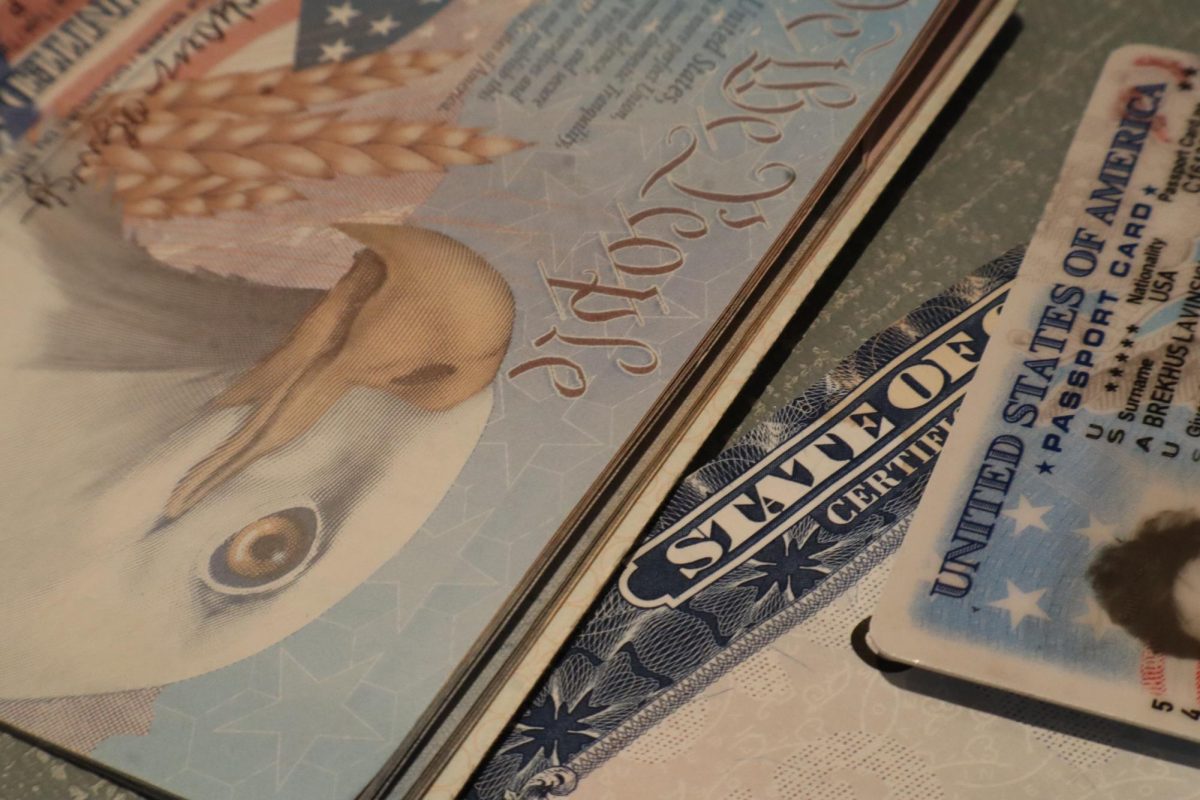Tamalpais Union High School District (TUHSD) is currently planning additional technology policies that will take effect in the fall of the 2025-2026 school year to crack down on disruptive behavior on computers during classes—a personal device ban. Rose Chavira, Senior Director of Information Technology (IT) at TUHSD, is in charge of making the proper arrangements to adjust for the changes.
“There’s a lot of student-to-student chatting going on on personal devices and that is actually one of the types of activity that they are trying to prevent by creating the cell phone policy. But then, the subset of the students in the room that have a personal device, like a laptop or tablet, are continuing that activity and it’s not exactly equitable,” Chavira said.
According to Chavira, the district is facing much more pressing issues than students simply being distracted in class. Since TUHSD’s internet provider can track all device activity on the Wi-Fi, the district has been alerted to illegal activity coming from student devices—specifically, cases of copyright infringement.

“We as a district are responsible for [illegal activity on campus] and could face legal action,” Chavira said.
Chavira clarified that this is not a push to ban Apple products specifically.
“We have a few different Macintosh-based labs at Redwood, the one in [room] 177 used by [the journalism classes], the one in [room] 521 used by the photography program and then there’s a graphic design lab in room 404. So, those are not going away. Those are district-provided devices that are going to remain in use in the coming school year,” Chavira said.
To prepare for the switch to school-provided devices, TUHSD’s IT department plans to replace older Chromebooks with newer, wide-screen ones. The Wi-Fi will also be updated to improve the devices’ processing speeds, which is one of the main critiques of the current school-provided devices.
“We are planning an upgrade to the wifi system so that all of the Chromebooks in the cart will operate a lot faster. The Chromebook technology has now surpassed what the wifi network can handle, so we are working on a comprehensive upgrade to the wifi network,” Chavira said.

Junior Julian Roth, a student activist who amassed over 1000 signatures on a petition against the Yondr pouch purchase, shared his insight on the IT department’s new proposal.
“[Personal devices are] so much faster. Even though there are more distractions, it makes everything more efficient. I can open up my laptop and it doesn’t take [multiple minutes] to boot up. Most students will agree you can just access everything so much more quickly. You can open more tabs without having the computer load slowly,” Roth said.
Roth regularly uses a Remarkable, a Kindle-like device with which he can write on with a pen to take notes. He wonders where the line will be drawn on what devices will be banned or allowed.
“I’m not entirely opposed to it; it just needs to be thought out,” Roth said.







